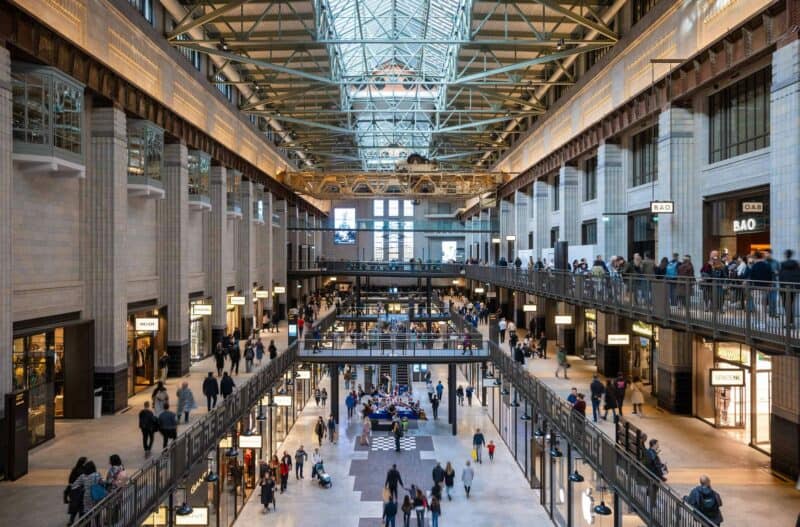London is still one of the world’s most dynamic destinations, and this is largely due to the city’s ability to adapt rapidly to changing user/customer demands.
Brexit and the pandemic have pushed changes faster and further than anywhere else in the world. The value of space is being rethought, and alternative mixed use of space is the avenue to explore. These new spaces are the result of how professional and personal life needs overlap and intertwine to make greater sense for the urban dweller of today. Department stores such as John Lewis are considering repurposing some of their retail space to rent it as workspace, another is looking to convert floors to welcome guests in their own hotel! On a larger scale, investment in whole new areas has seen the development of centres such as Kings Cross and very recently around the Battersea Power Station.
The British consumer is wholly demanding, agile, connected, and open to new experiences. Concerned for the environment while aware of the unstable economic market the Brits remain ready to challenge classic concepts, while demanding transparency and authenticity. They are no longer as loyal as previously. They wish to be entertained, plus they want to meet new people and so create communities.

The rise of entertainment is changing retail store formats. ‘Lego isn’t concerned where people buy, they want customers to enjoy playing with the bricks in store, and whether they buy there, or later online, isn’t an issue for them,’ says CBRE Global Investors’ Caitriona Hunter. ‘It’s all about the experience and community.’
This interest stretches to food and beverage, and even in this somewhat pessimistic market, we can see the investment in eating and drinking, the demand for choice, the need to meet up with friends and family are key focuses for spending.

